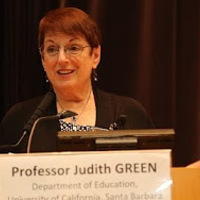Papers by Theresa Y Austin
The Politics of Researching Multilingually, 2022

According to sociocultural theory (SCT), corrective feedback (CF) entails a negotiation process w... more According to sociocultural theory (SCT), corrective feedback (CF) entails a negotiation process whereby writing instructors support second language (L2) writers in self-correction and provide a level of guidance needed for writers to actively engage in revision tasks (Aljaafreh & Lantolf, 1994). Drawing on SCT, this collaborative self-study details the CF experiences of one writing instructor and four L2 students. Focusing on six “critical incidents” occurring within the instructor’s teaching context (a developmental writing course in a Northeastern U.S. university), the authors investigate L2 writers’ responses to written (WCF) and negotiated oral CF. During these incidents, students engaged with different forms of CF. The authors’ analysis of these incidents draws attention to the micro- and macro-contextual features that complicate students’ uptake and perceptions about differing forms of CF. Findings reveal the importance of face to- face negotiation in resolving lexicogrammatic...

TESOL Quarterly
Anglophone universities have increasingly become contact zones for the growing numbers of ethnoli... more Anglophone universities have increasingly become contact zones for the growing numbers of ethnolinguistically diverse students who use English as a lingua franca (Jenkins, 2014). Despite the sociolinguistic reality of English as contact language, monolingual and monoglossic ideologies often prevail not only at the macro institutional scale, but also at the individual learner scale. By idealizing native English speakers, regarding English as uniform, and viewing writing instruction as a means to reduce linguistic difference, ESL learners can perpetuate the sort of dominant ideologies that critical language pedagogies seek to disrupt. Building upon previous learner belief research, this practitioner-led comparative case study explores the expressed language ideologies and language socialization experiences of two firstyear Chinese undergraduates who were participants in a developmental writing course in a Northeastern University in the US. Despite learning about critical language awareness (CLA) pedagogy (Fairclough, 1992), results show that the students expressed a range of dominant and critical language ideologies which were connected to a configuration of micro and macro contextual factors beyond the course. We conclude with implications of these results for critical language pedagogy within writing courses.
Decolonizing Foreign Language Education
International Journal of Engineering Education, 1995

I. LANGUAGE / LANGUAGE LEARNING / LANGUAGE ACQUISITION. 1. How Languages Are Learned and Acquired... more I. LANGUAGE / LANGUAGE LEARNING / LANGUAGE ACQUISITION. 1. How Languages Are Learned and Acquired. Interactive Learning in Content-Based Classes. Socio-Cultural Theories and Practices. Psycholinguistic Theories and Practices. Role of Interaction in Language and Literacy Learning. Interaction and Roles of First and Second Languages. How Assumptions About Language and Language Learning Shape Our Understanding. Core Principles About Interactive Approach to Content-based Teaching and Learning. Second Language Learning and Second Language Acquisition. II. INTERACTIVE INSTRUCTIONAL PRACTICE IN CONTENT-BASED SETTINGS. 2. Methods and Approaches in Language Teaching. Traditional Behaviorist Methods. Rationalist and Mentalist Methods. Functional Approaches. Humanistic Approaches. What Is Language? A Look at Linguistic, Psycholinguistic, and Socio-Cultural Theories. 3. Planning for the Standards-based Classroom. Planning and Managing Interactive Instruction. Course and Program Planning. Program Models. The Role of Textbooks and Other Materials in Planning for Content-Based Instruction. Unit Planning. Planning for Diverse Learners. Planning Across Proficiency Levels. Daily Lesson Planning. Planning and Alternative Scheduling Formats. Effective Planning and Teaching Strategies. 4. Creating Interactive and Content-Based Assessment. Introduction to Assessment. Reasons for Assessment. Alternative Assessment/Performance-Based Tasks. Integrated Performance Assessments. Types of Oral Language Assessment. Reading and Writing Assessment. Rubrics. Steps to Designing a Rubric. Using Interactive Technology. Understanding Standardized Tests. 5. Interactive Listening and Reading. Interactive Listening and Reading in Content-Based Classes. Skills in Listening Comprehension. Research on Listening Comprehension Development. Classroom Application. Reading versus Literacy. Reading and Listening as Interpretive Skills. Reading and Viewing as Interactive Processes. Strategy-Based Reading Instruction. The Process of Interpretive Communication. Strategies Used in Interactive Listening. Characteristics of Successful Listeners. Reading as an Interactive Process. Types of Reading Strategies. Facilitating the Reading Process. Integrating Technology. Reading Assessment. 6. Foregrounding Oral Communication. Simultaneous First and Second Language Oral Development. Developing Oral Communication in Sequential Language Acquisition. Language as a Resource. Classroom Language Learning. Subtractive Bilingualism. Second Language Acquisition Research. Classroom-Based Research on Tasks and Interaction That Facilitate Oral Communication Development. Planned Oral Communication. Identity and Agency Building. Instructional Practices for Oral Communication Development. Going Beyond the National Standards. 7. A Focus on Written Language Communication. Research on Writing. Teaching Interactive Second Language Writing in Content-Based Classes. Writing and the Standards. Integrating Technology and Writing. Writing Assessment. Teaching Diverse Learners in the Writing Process. Writing and Reading Strategy Instruction. 8. An Interactive Approach for Working with Diverse Learners. Impact of Changing Demographics. Pedagogical Implications for Working with Diverse Learners. Learner-Centered Instruction in an Interactive, Content-based Classroom. The Multiple Intelligences. Learning Styles. Culturally Relevant Pedagogy. Culturally and Linguistically Diverse Exceptional Students. Working with Gifted Learners in Second Language Classrooms. Special Needs Learners. 9. Integrating Technology in an Interactive, Content-Based Classroom. Pedagogical Implications for Using Technology. Digital Literacy Technology in an Interactive Classroom. Technology and Foreign/Second Language Literacy. Computer Assisted Language Learning (CALL). Games as Interactive Activities. World Wide Web Resources for Language Teachers. E-mail. Listservs. Chatrooms. Distance Education. Video Conferencing. Using Internet-Based Activities. Videotexts. Technology and Assessment. Technology and Standards. Determining Selection of Videos for Use. Developments and Trends in Technology. III. FOCUS ON COMPREHENSION. 10. Comprehension Exercises and Activities.
日本教育心理学会総会発表論文集, 1998
... 著者名, 著者所属, 刊行物名, ISSN, 巻, 号, ページ, 出版者, 参考文献, 出版年, 年から 年まで. すべて CiNiiに本文あり CiNiiに本文あり、または連携サービ... more ... 著者名, 著者所属, 刊行物名, ISSN, 巻, 号, ページ, 出版者, 参考文献, 出版年, 年から 年まで. すべて CiNiiに本文あり CiNiiに本文あり、または連携サービスへのリンクあり. "Kore Kara boku no happyo wo hajimemasu". Theresa Austin; University of Massachusetts, Amherst. 本文を読む/探す ...
Culturally Responsive Pedagogy, 2017
The Modern Language Journal, 2016
Educational Foundationseducational Foundations, Jun 22, 2009
Languages and Linguistics, 2012
Foreign Language Annals, 2001
Foreign language annals, 2002
Información del artículo SIG Corner: African-American Students Special Interest Group -- Teaching... more Información del artículo SIG Corner: African-American Students Special Interest Group -- Teaching Foreign Languages to the African-American Student.
Journal of Urban Learning, Teaching, and Research
In this article, we examine collaboration as a situated practice that defies a prescriptive defin... more In this article, we examine collaboration as a situated practice that defies a prescriptive definition mainly located in the interpersonal relations of professionals. We argue that collaboration does not merely depend upon―good‖ will or professionalism, ...











Uploads
Papers by Theresa Y Austin